Cupra’s Leon ranks have been bolstered with a plug-in hybrid, available here in Sportstourer guise alone. This adds another petrol-electric option to the Cupra range, alongside the Cupra Formentor V e-Hybrid.
But with the axing of rebates and with road user charges to pay from April 1 (no joke), these PHEVs now require more careful consideration. Is it the right fit for your needs, and is the premium worthwhile?
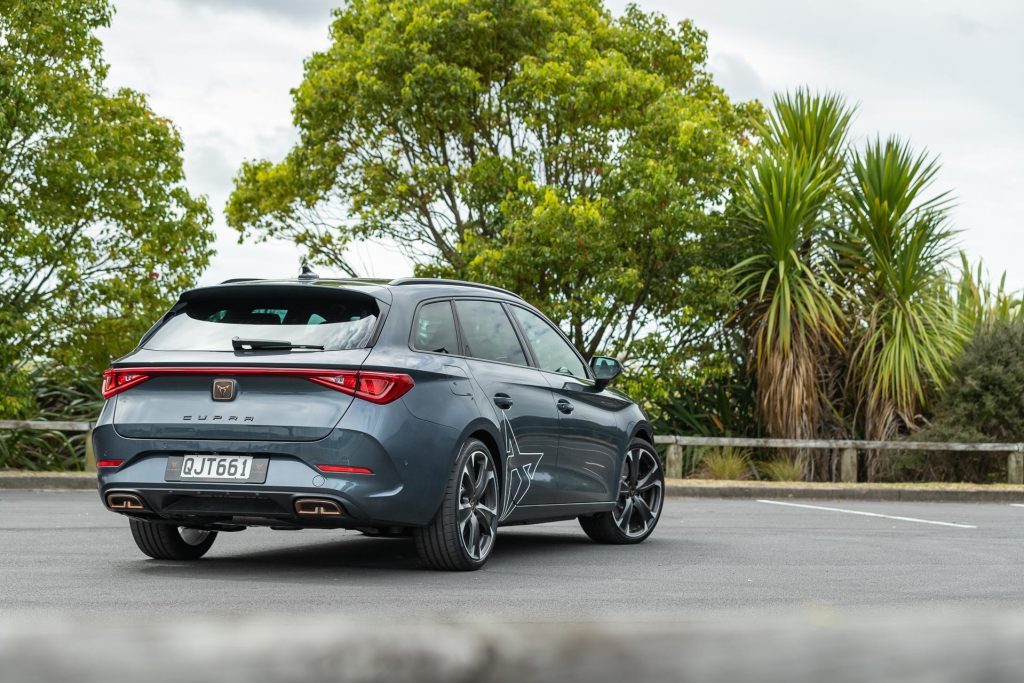
Like many electric models to launch lately, the Cupra Leon plug-in is on special. It’s listed at $77,900 but currently it is offered at $69,990.
That makes it slightly more palatable. However, the go-fast Leon VZ is also $69,990, and is no longer slogged with a fee. This speedy wagon offers 228kW of turbo-fired power, AWD and a generous helping of dynamic flair.
Meanwhile the V e-hybrid offers up 400Nm of torque (the same in fact as the VZ) thanks to its 110kW/250Nm 1.4-litre turbopetrol combining with a 85kW/335Nm electric motor.
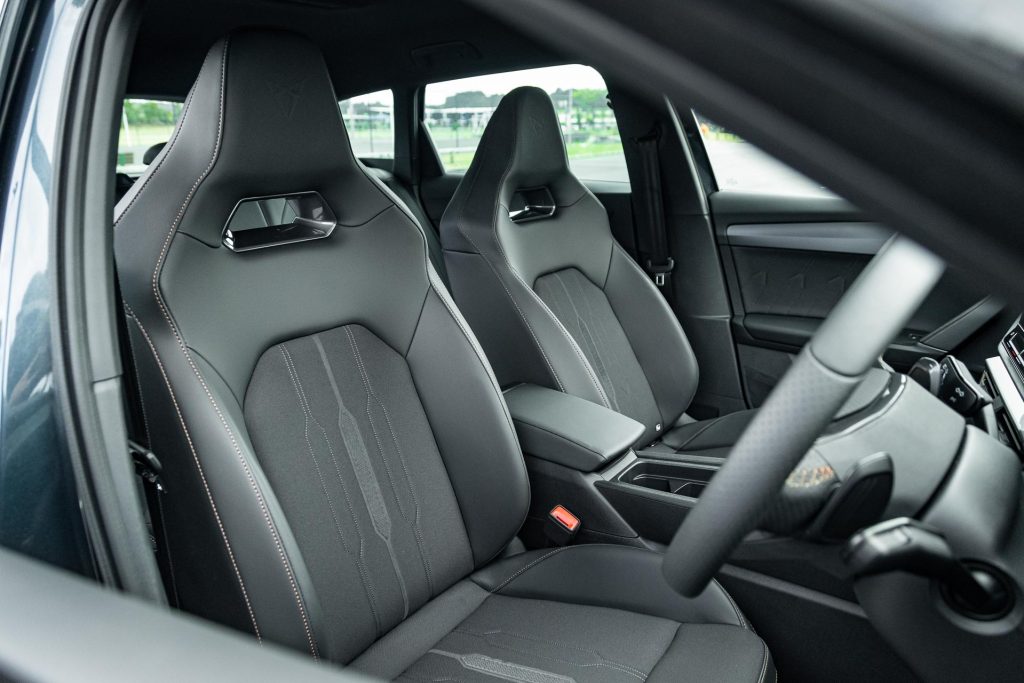
Together they generate a total output of 180kW and 400Nm. The stat that will draw some in is the 1.2L/100km fuel consumption figure, though that comes with a caveat. You’ll only come close if you recharge regularly.
For instance, over the first 100km of travel in this Leon, we managed 1.0L/100km thanks to starting with a full battery and recharging it overnight. From that point on we neglected our charging, and the fuel use rose steadily; after 290km it was at 5.2L/100km.
The long term average for this car over 1072km was sitting at 6.6L/100km.
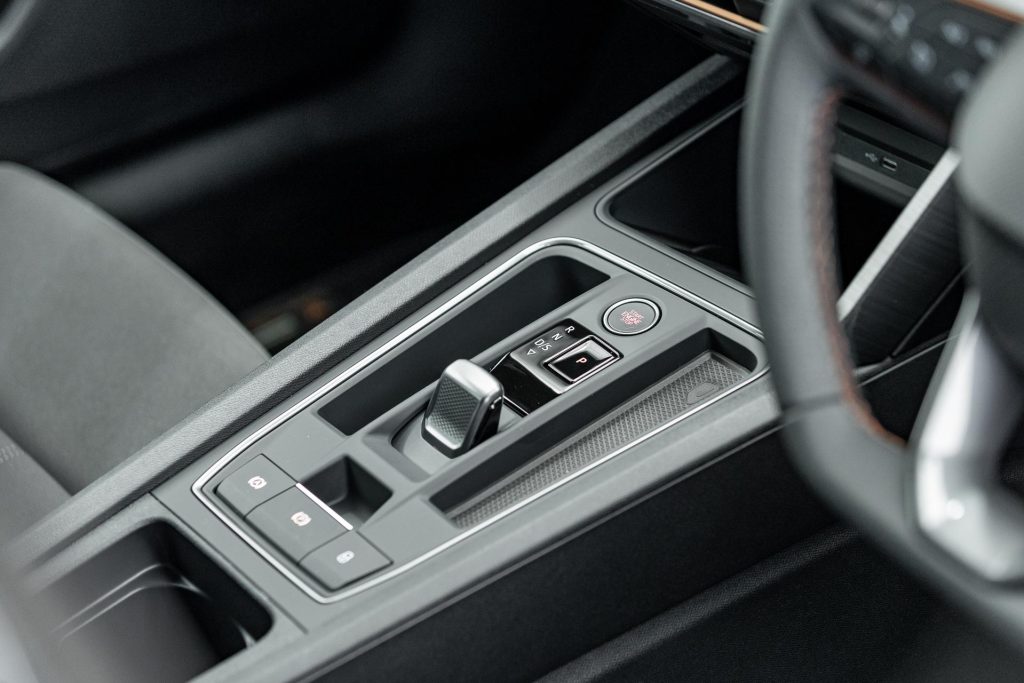
The battery is said to deliver up to 58km of driving in e-mode (where it is propelled by the electric motor alone) whereas we recorded 45km to a charge twice. A refill via the supplied portable charger takes six hours, the battery soaking up 11.1kWh.
So it’s roughly using 24kWh/100km in e-mode, hardly amazing electrical efficiency, but then the modest motor is tasked with lugging around the car, along with an engine and a tank of gas.
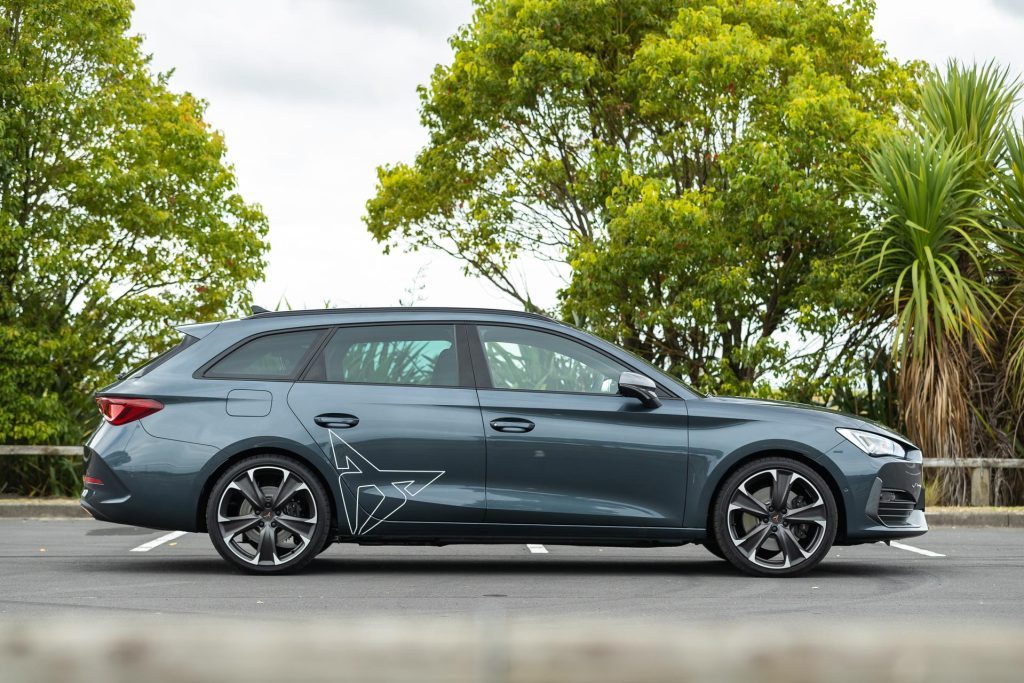
A similar-sized EV could expect to get about 16-17kWh/100km. But that is the hybrid compromise.
Now that plug-ins are having to pay both RUCs and tax at the pump, you’ll be wanting to use the plug as often as possible and the petrol pump sparingly.
At least with Cupra’s driveaway deal, your first tank of fuel is included, the price is the price, and your on roads are sorted too.
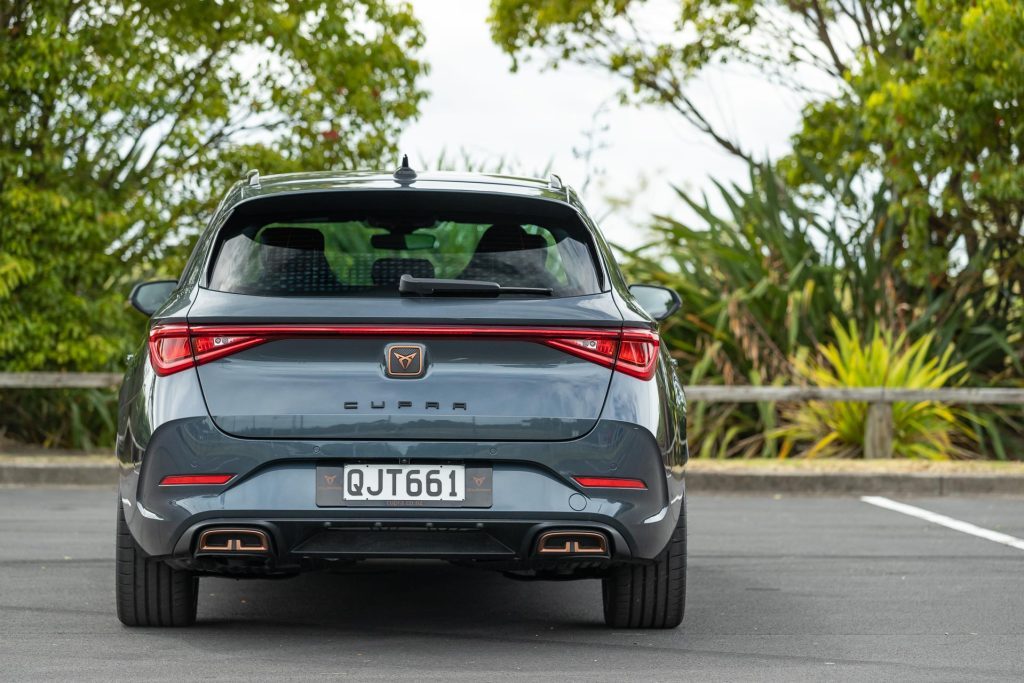
Got enough charge? It’ll default to e-mode, where the 85kW motor is sufficient, given it has 330Nm and is operating with the help of the transmission.
It’s enough for urban commuting and works up to open road speeds as well.
There are a couple of hybrid-specific modes within the touchscreen menu where you can activate hybrid drive, should you prefer it, and there’s a quasi-battery save mode allowing the use of the e-mode later in your journey.
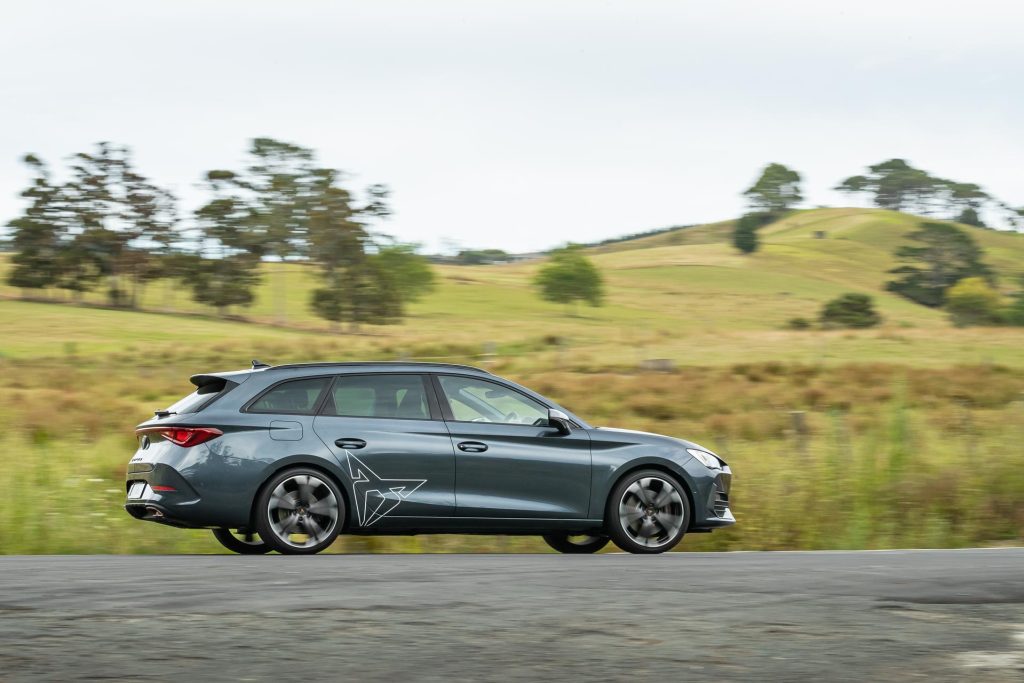
There’s also a pre-conditioning function; set your departure time and the car will be heated or cooled to the desired level while using the mains power when plugged in.
While you can set the level of motor regen to high or low, it does the job well in its auto mode, coasting on a dead throttle and slowing when approaching traffic ahead. So we left it to control proceedings.
Once the battery is too low on watts to support the e-mode, you’re in hybrid setting. Here you get both the engine and motor working together, the regen allowing the latter to continue to help out.
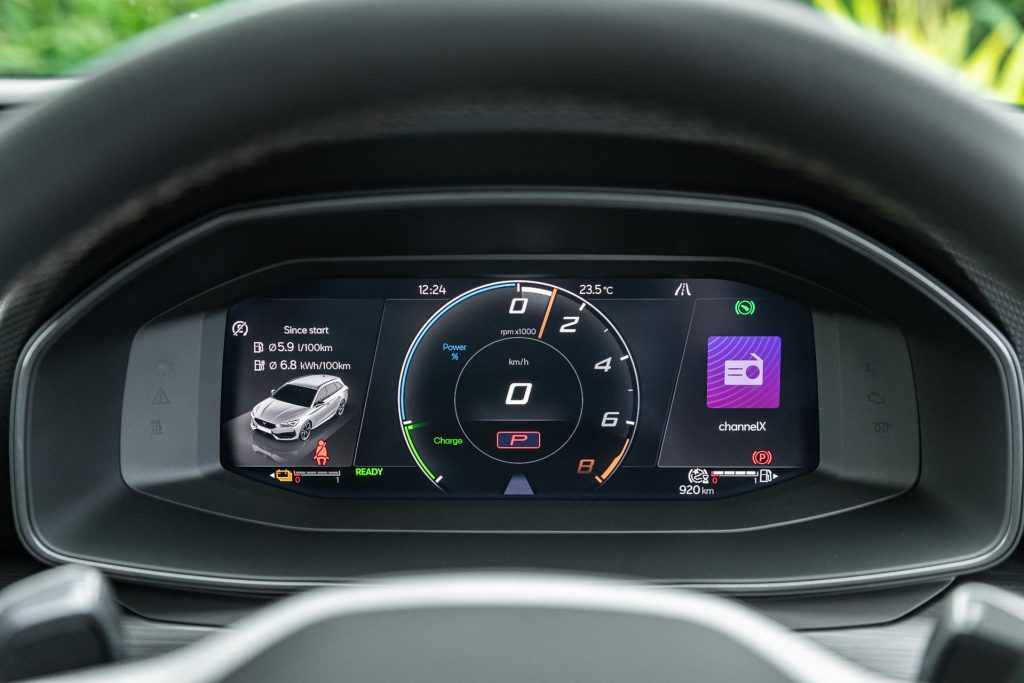
It pulls well from stopped, and with its low down electric torque, this can haul second gear from a rolling start much better than the regular mild hybrid Leon. It’s smooth too, gear changes slick, and is particularly strong around the 2000rpm mark.
Therefore, there’s no need for an excess of revs to get going and when you do poke the throttle, the tacho/power gauge indicates the motor is helping boost your progress to deliver the 180kW/400Nm max.
Countering that, it’ll take every opportunity to switch the engine off to lower the fuel consumption.
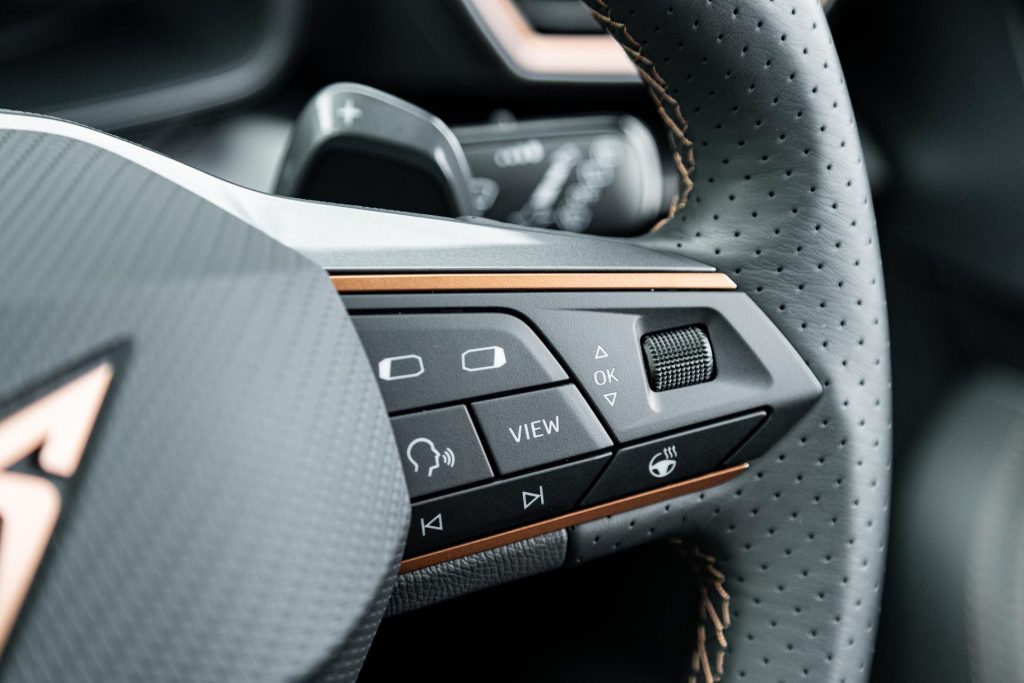
While there’s not quite the same overall boot capacity as the other Leon wagons, there’s still a handy 470L of space. And it’ll tow 750kg (1500kg braked).
There’s family-friendly passenger space in the rear, with adequate, if not amazing legroom.
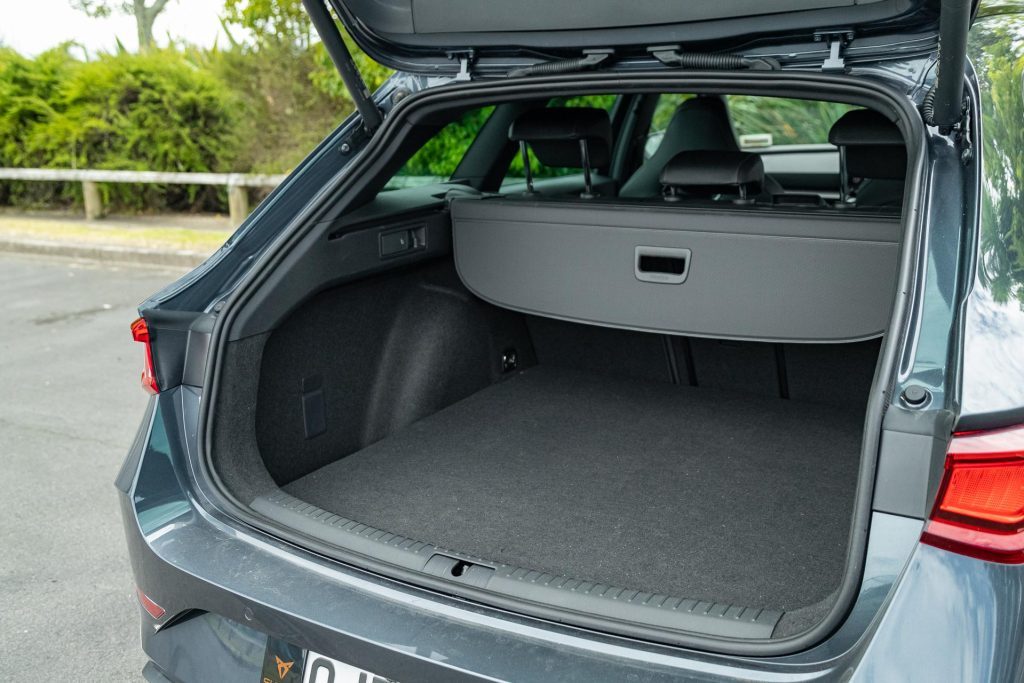
The sporty seats up front deliver a decent driving position, with good adjustment and comfort. While charging is sorted with a charge pad and various USB ports, storage is a little tight and none of the pockets is lined, not even the glove box.
The infotainment screen looks vibrant with all the usual features present. However, while its response time is adequate, the layered menus require both familiarity and multiple touches to get things done.
The ambient lightning in the cabin is tasteful, and smart too as it’s used by the safety systems to alert you to impending doom. These assistants aren’t too fanatical however.
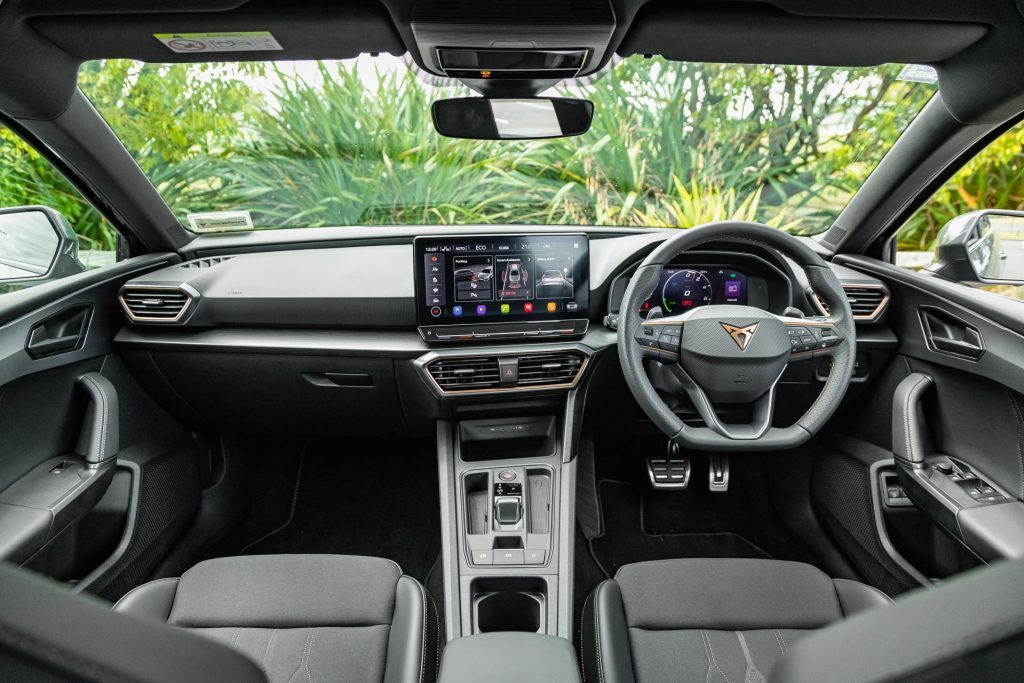
The quick and light steering helps in traffic, and while there’s only a rear view camera, given this isn’t a 2m wide SUV, it’s easy enough to park. Which means the self parking gizmo will likely go unused.
Dynamically this is sound, with good steering traits and a positive turn-in. While it obediently tracks around the bends, the one stat against the hybrid is weight.
It’s a claimed 1704kg, making it some 300kg heavier than the V. This takes the gloss off its performance, the extra mass telling and it’s just not as nimble as the mild hybrid.
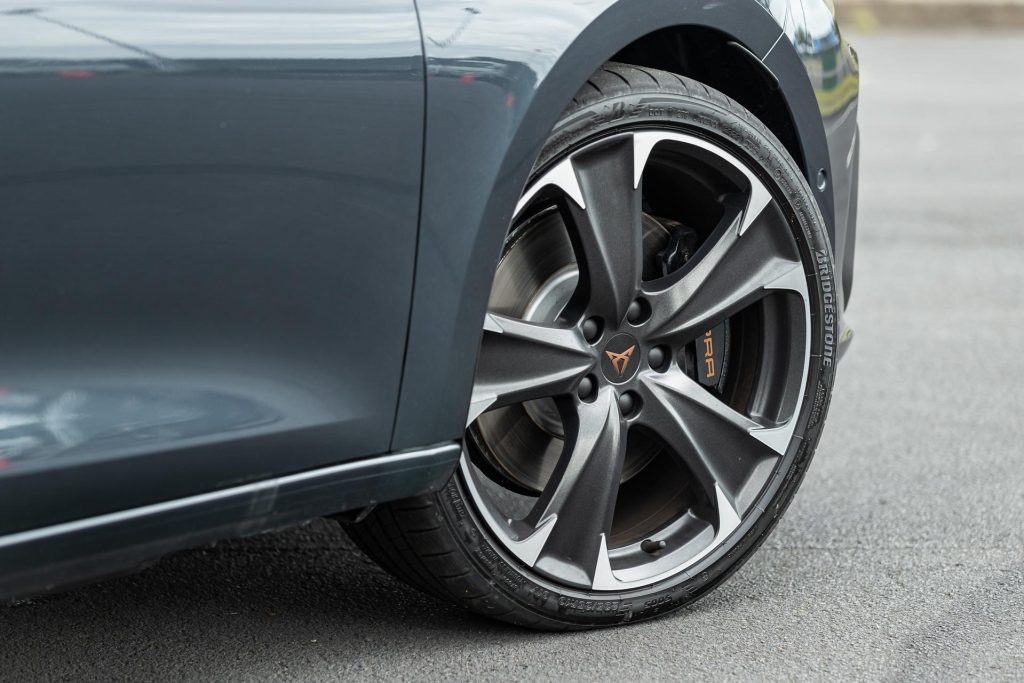
There are the usual plug-in hybrid characteristics too; the brake pedal action is inconsistent and, until you’re in the sporty modes, the powertrain response can be delayed as the engine switches in and out.
This has Cupra’s dynamic chassis control, or adaptive dampers, which firm up in the Sport mode, but are still able to breathe over the bumps.
Back in Comfort mode, the ride is more agreeable, though the big wheels transmit the larger bumps.
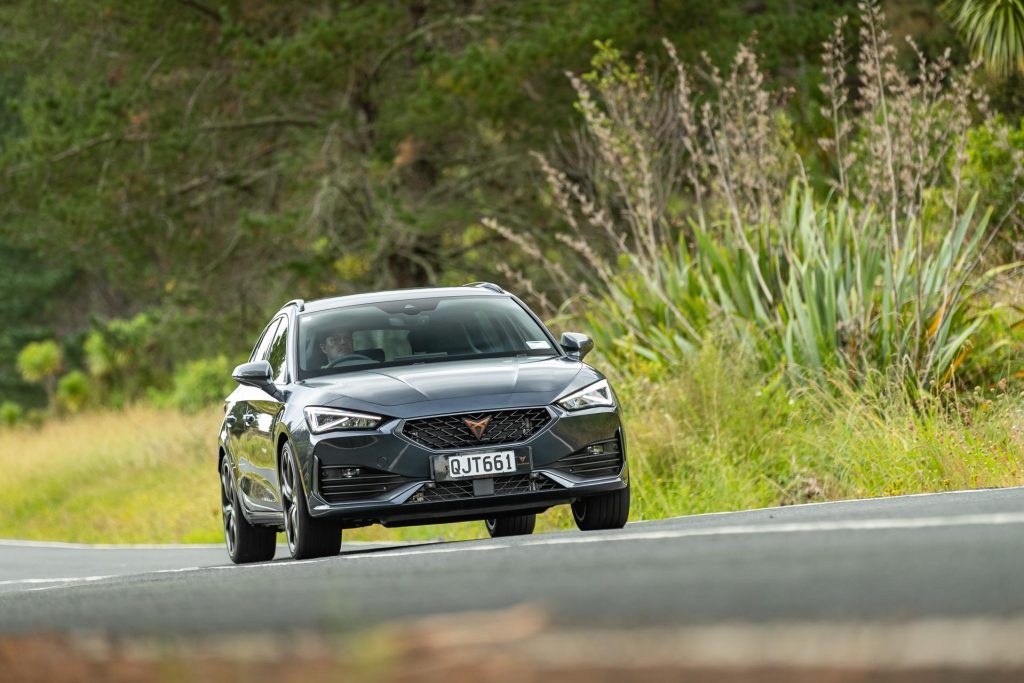
This V e-hybrid is a decent drive, and it might be a good bridge for those not ready to give up on combustion just yet, but want to reduce their transport-related emissions.
It’s easy to recharge for those who travel less than 50km during their daily business, while having the ability to roam further and more freely than an EV.
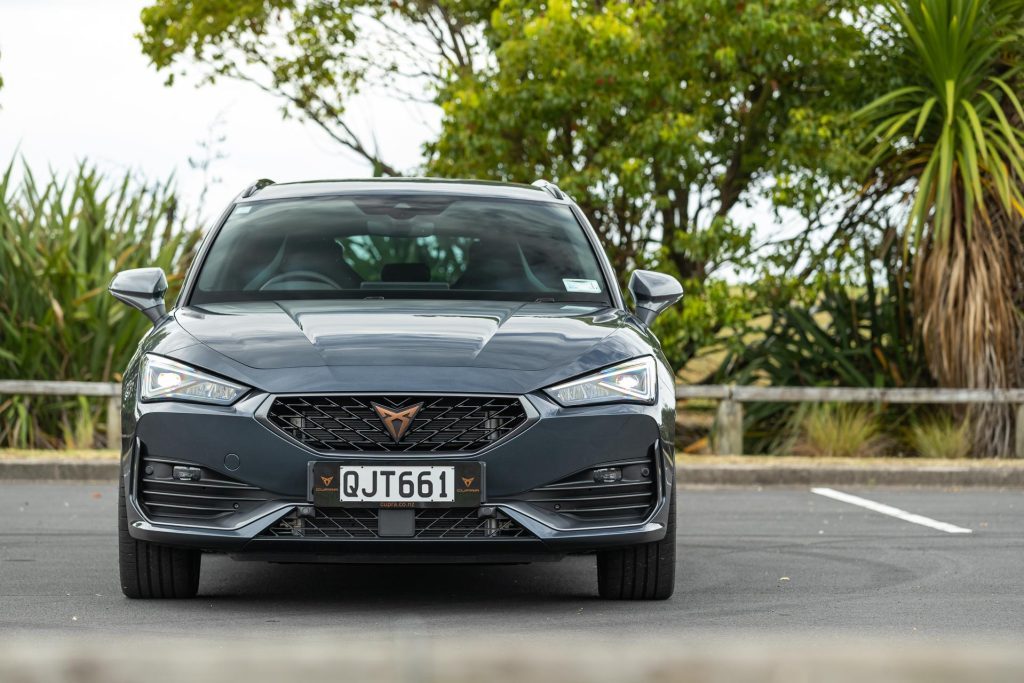
But even at its reduced price, it’s still hard to justify the premium over the talented $50,990 mild hybrid version. By comparison, that car returned 8.0L/100km when we had it on test.
Perhaps you could use the $20k saving to buy an e-bike for those short trips and plant some trees to help offset the additional carbon?
| Model | Cupra Leon V e-Hybrid Sportstourer |
| Price | $69,990 |
| Engine | 1395cc, IL4, T, DI |
| Power | 110kW |
| Torque | 250Nm |
| Motor Output | 180kW / 400Nm |
| Drivetrain | 6-speed twin-clutch, FWD |
| Turning circle | 10.5m (2.2 turns) |
| Fuel Use | 1.2L/100km |
| C02 Output | 29g/km |
| 0-100km/h | 7.0 sec |
| Tyre Size | f/r-225/40/R18 |
| Fuel Capacity | 40L |
| Stability systems | ABS, ESP, TV |
| Safety | AEB, ACC, BSM, LDW, RCTA, ALK, AHB |
| Luggage Capacity | 470-1450L |
| Tow rating | 750kg (1500kg braked) |
| Service intervals | 12 months/15,000km |
| Warranty | 5 years/100,000km |
| ANCAP rating | 5 Stars (2020) |
| Weight | 1704kg (claimed) |
This story first appeared in the April 2024 issue of NZ Autocar magazine.


